|
As abortion access comes under threat in the United States, much discussion is necessarily about rights and choice. It’s important not to lose sight of abortion as a vital component health care. This is especially crucial for women and families with genetic risks.
Today in The Conversation Canada, Neal Sondheimer of the University of Toronto discusses the harsh realities of inherited diseases, which often mean a couple has one in four odds of a fetus being affected by a serious or fatal genetic condition. In such cases, Sondheimer notes that abortion provides a safe option when the alternatives are devastating, paradoxically making pregnancy possible for people with high risks.
“More consideration needs to be given to women and their partners who have a need for abortion due to serious fetal problems that will lead to early death or profound disability in their children,” he writes. “Abortion is a critical option, a security feature that allows them to consider having children again.”
Also today:
All the best.
|
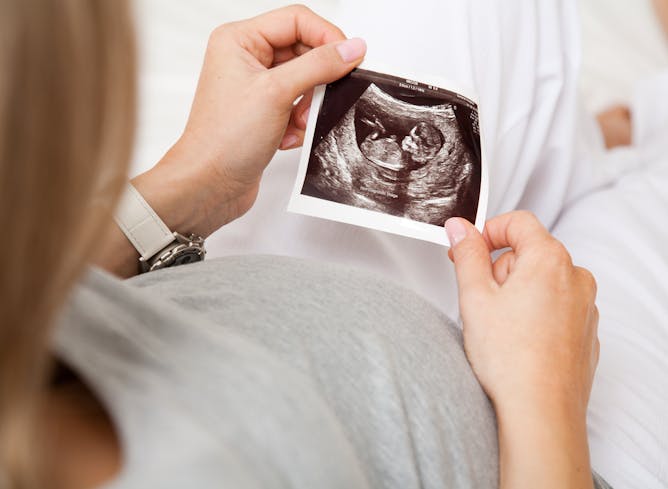
Incidence of birth defects is about one in 25 pregnancies.
(Shutterstock)
Neal Sondheimer, University of Toronto
For women with a family history of serious genetic disorders, abortion is a critical option: a security feature that allows them to consider having children.
|

New twists and turns, as Elon Musk raises concerns about Twitter before the purchase deal is complete.
(Patrick Pleul/Pool via AP, File)
Anup Srivastava, University of Calgary
Elon Musk’s recent antics call into question his decision to purchase Twitter. With a US$1 billion termination fee built into the contract, Musk should cut his losses.
|
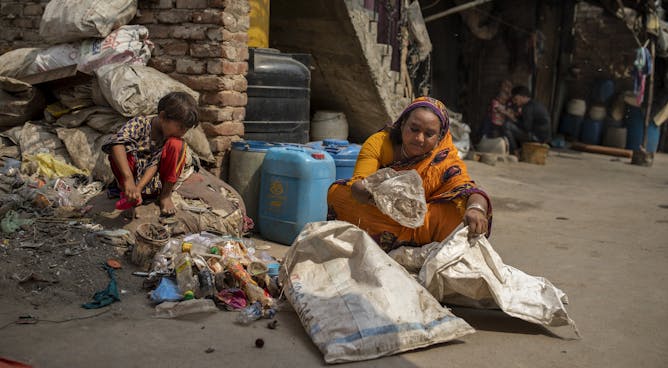
An Indian woman sorts reusable items from a landfill on the outskirts of New Delhi in March 2021. Trash pickers sometimes toil alongside paid municipal sanitation workers and provide a vital service to cities. Their subsistence work is put at risk by smart city technologies.
(AP Photo/Altaf Qadri)
Josie Wittmer, Queen's University, Ontario
‘Smart’ solutions to urban solid waste are creating serious challenges for low-income women waste workers in India.
|

People often underestimate the risks of swimming in the Great Lakes, and neglect rough surf and nearshore currents.
THE CANADIAN PRESS/Darryl Dyck
Chris Houser, University of Windsor; Alex Smith, University of Windsor
Rough surf and nearshore currents lead to about 50 drowning fatalities annually in the Great Lakes.
|
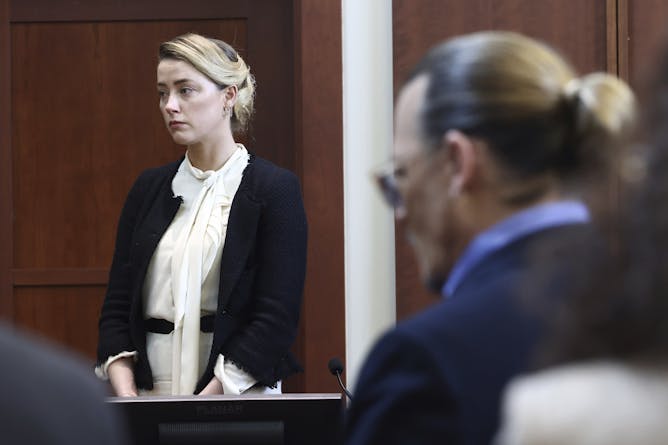
Amber Heard and Johnny Depp appear in the courtroom at the Fairfax County Circuit Court on May 5, 2022.
(Jim Lo Scalzo/AP)
Maddie Brockbank, McMaster University
What appears to be normal social media activity exposes a much darker reality: fan culture often leads to deeply harmful conversations shaping how people address and redress violence.
|
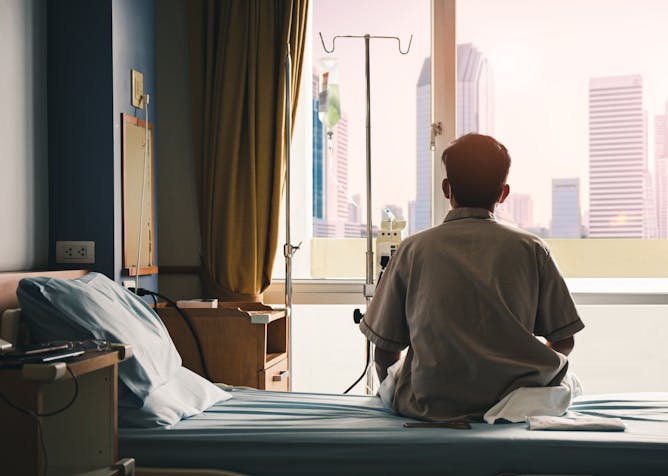
Hospital design shifted in the 20th century as hospitals moved from being places for treating disease and injury to being centres of health systems.
(Shutterstock)
Mohsen Rasoulivalajoozi, Concordia University; Golriz Farzamfar, Concordia University
The theory of supportive design considers
positive distraction, perceptions of control and social support.
|
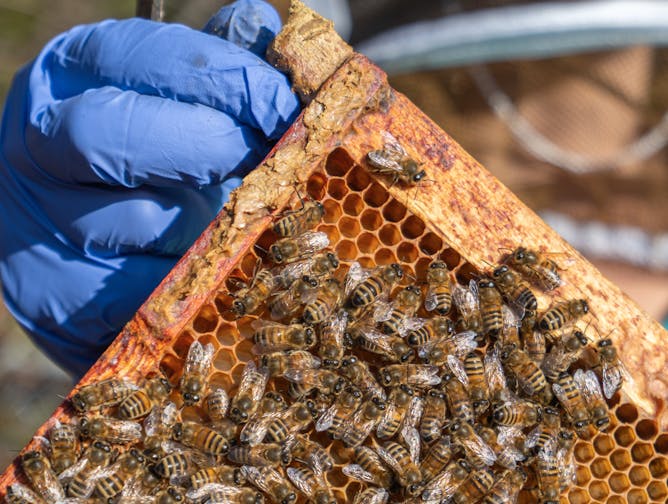
Des abeilles ouvrières sur un cadre de ruche.
(Leslie Kennah)
Alison McAfee, University of British Columbia
Des apiculteurs de la Colombie-Britannique ont signalé la mort d'abeilles domestiques pendant le dôme de chaleur de 2021. D'autres insectes peuvent également être en danger.
|
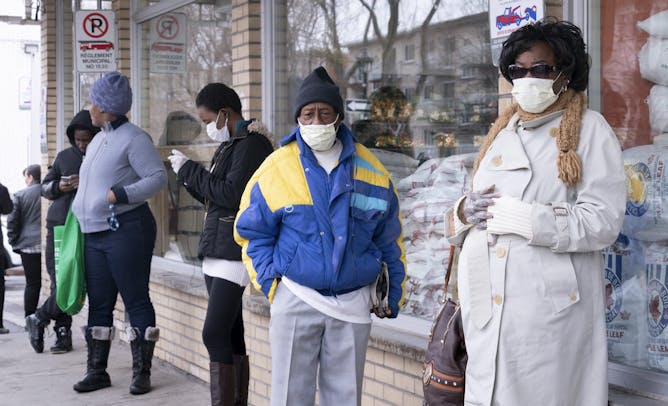
Des gens font la queue devant une épicerie de Montréal-Nord, le 30 avril 2020. Le quartier, l’un des plus pauvres au pays, a été l’un des plus affectés par l’épidémie de Covid-19.
La Presse Canadienne/Paul Chiasson
Marie-Catherine Gagnon-Dufresne, Université de Montréal; Camille Beaujoin, Université de Montréal; Fanny Chabrol, Institut de recherche pour le développement (IRD); Lara Gautier, Université de Montréal; Stéphanie Gomes de Medeiros, Universidade Federal de Pernambuco; Valery Ridde, Institut de recherche pour le développement (IRD); Zoé Richard, Université Paris Cité
Que ce soit au Québec, en France, au Mali ou au Brésil, la réponse à la pandémie de Covid-19 apparaît comme une opportunité manquée de lutter contre les inégalités et les injustices.
|
Ukraine Invasion
|
-
Shelley Inglis, University of Dayton
Countries would likely need to set up new courts to prosecute Vladimir Putin for illegally invading Ukraine – but this isn’t a sure bet he would ever be held accountable for his crimes.
|
|
Podcasts
|
-
Gemma Ware, The Conversation; Daniel Merino, The Conversation; Michelle Grattan, University of Canberra
Australians head to the polls in federal elections on May 21. Your guide to what’s at stake. Listen to The Conversation Weekly podcast.
|
|
Education
|
-
Abigail A. Allen, Clemson University
The COVID-19 pandemic – and the isolation it brought on – deprived many babies of the stimulating experiences they need to develop. Is the damage permanent? A language specialist weighs in.
|
|
Environment + Energy
|
-
Daniel Macfarlane, Western Michigan University
Cleaning up the Great Lakes was a big job when the US and Canada undertook it in 1972. Today it’s far more challenging.
|
|
Politics
|
-
Meghan Tinsley, University of Manchester
Discussions of racism in Britain centre around the experiences and traumas of Black people, but rarely on the perpetrators.
|
|